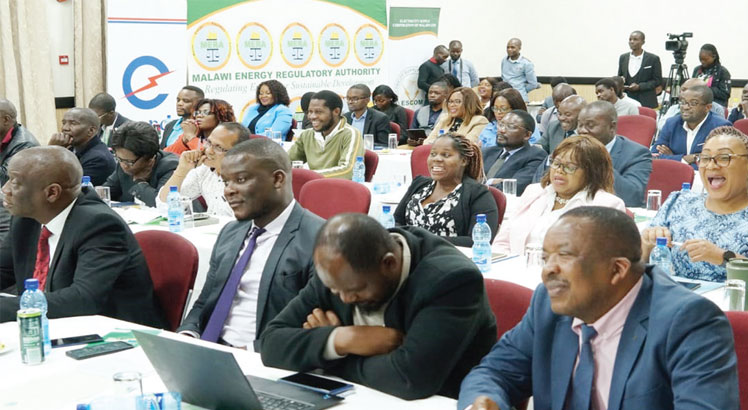Electricity Supply Corporation of Malawi’s (Escom) proposal to increase electricity tariff by 69.7 percent over a four-year period faced criticism yesterday, with the industries and consumers accusing the power utility of being unjust and unrealistic.
The consumers and industry players expressed the sentiments in Blantyre during the first leg of
public hearings on Escom tariff hike proposal convened by Malawi Energy Regulatory Authority (Mera)
But Escom chief operations officer Maxwell Mulimakwenda maintained that the proposal to raise the tariff is justified as the country’s sole power supplier plans to undertake investments over the stated period.
He said the increase is mainly due to power purchase costs, which include cost to buy power from Mozambique-Malawi Interconnector and Serengeti Solar Power Plant, inclusion of the wheeling charges for the interconnector, introduction of the stabilisation fund and efforts to improve service delivery to customers.

“Additionally, the devaluation of the kwacha over the years, with a major devaluation in May 2022, has contributed to the significant increase in total costs,” he said.
But in his presentation, Consumers Association of Malawi executive director John Kapito said the tariff hike proposal will have negative implications on the consumers who are already struggling.
He said instead a 46 percent tariff hike would have been realistic.
Kapito said Escom has no moral ground to raise electricity tariff by 69.7 percent as it has failed to meet many of its key performance indicators.
“When you look at how the company has performed in the years, one can easily note that it has not performed to the expectation of its customers and by its set targets,” he said.
Kapito said for instance, between 2018 and 2022, Escom promised to cut system losses to 17.4 percent, but instead increased to over 22 percent.
“This leaves us wondering if the new targetsin the next four years will be achievable,” he said.
Renewable Energy Industries Association president Soustain Chigalu said the electricity tariff hike proposal should not go beyond 50 percent, adding that further increases should be subject to prevailing economic conditions.
He said: “Escom has a number of in-house issues that it needs to address before passing on the costs to consumers.
“There are some operational inefficiencies which it needs to look into. Escom may also wish to step up in reducing commercial costs and other unnecessary cuts within the institution and not rush to hike the tariff this much.”
The application for the tariff increase is set to be a successor base tariff to the one implemented from 2018 to 2022. This means that consumers will be paying an average of K177.26 per kilowatt hour (kWh) from the current of K104.46/kWh.
Mera chief executive officer Henry Kachaje said the regulator will review and consider the comments from the public and proposal by Escom and gauge if the power utility demonstrates commitment to the plans and projects outlined in the proposal.
The fresh electricity tariff hike proposal comes against a background of water boards implementing an average 50 percent tariff hike from June 1 this year and a cost of living crisis.
In line with the 2017 Tariff Methodology, once every four years, Escom submits a base tariff application to Mera for consideration and approval.
Source:The Nation_11 July, 2023_By Orama Chiphwanya-Staff Reporter
